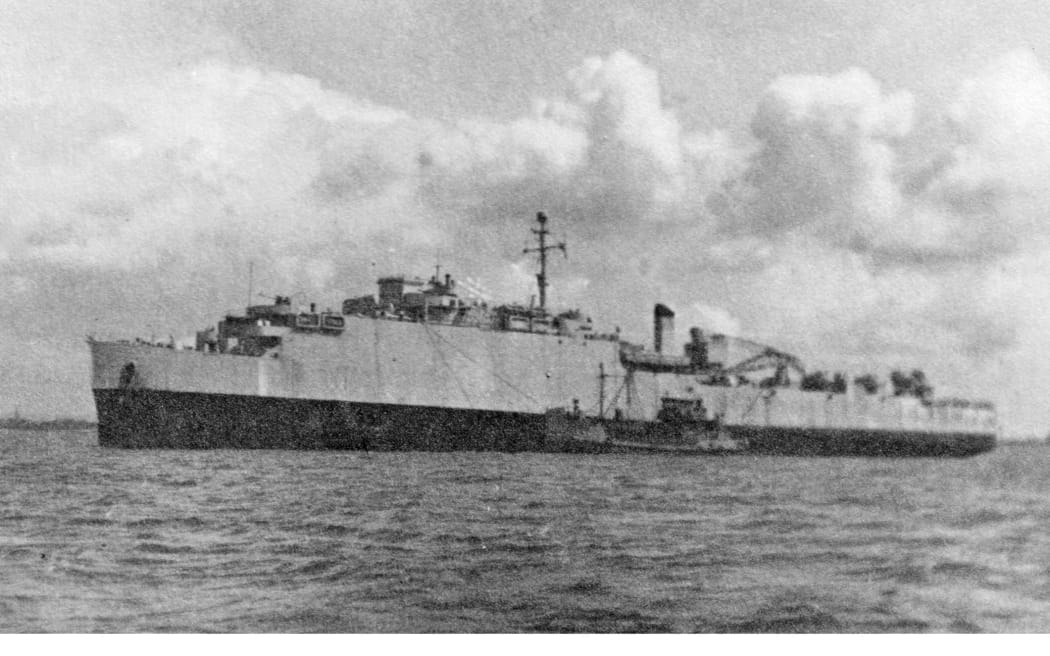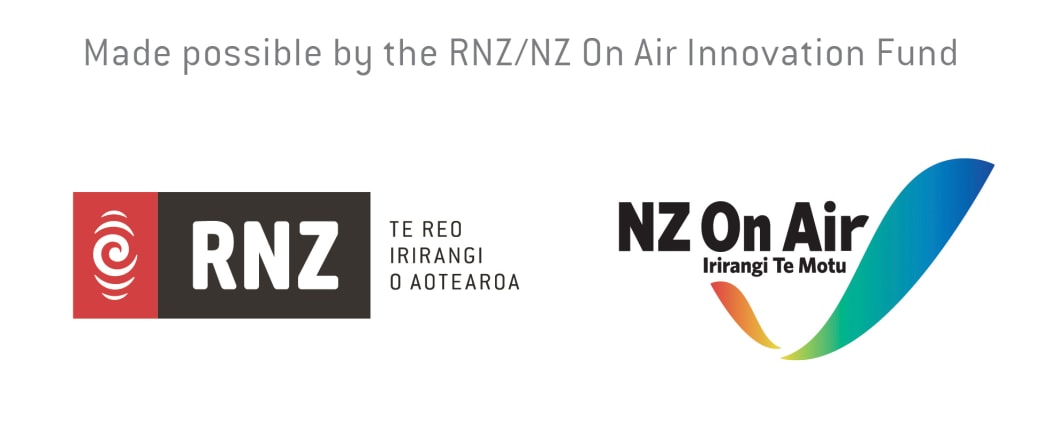
The HMS Oceanway, on which Jim Kelly served. Photo: Supplied
On the 6th of June 1944, 130,000 allied troops landed on the shores of German-occupied France.
They, and tens of thousands more who had flown overhead, landed on Normandy’s shores, in what historians now dub one of the turning points of the Second World War.
No New Zealand military units officially landed at Normandy– but oral historian Alison Parr says Kiwis still played a major role in the D-Day operation.
“There were more than 10,000 Kiwis who were serving in both the Royal Air Force and the Royal Navy,” she says.
“On the day, in the RAF, they were flying in bomber crews that were sent to attack German defences, [and] they were flying fighter planes supporting the landings. In fact, a plane from the New Zealand squadron… was the first to shoot down a German aircraft on D-Day.
“In the navy, there were Kiwi seamen and officers in frigates and battleships and destroyers in the channel, and there were other New Zealanders serving as officers in landing craft.
“New Zealand servicemen were very much part of the D-Day invasion.”
Parr, who wrote ‘The Big Show: New Zealanders, D-Day and the War in Europe’, says while the centenary commemorations for the Second World War are still decades away, the conflict will get more attention as the 100th anniversary draws closer.
But she says while remembrance is important – it’s also important to commemorate in an effective way.
“It’s really important that we remember, but I think the whole thing can become almost like a cliché. And I think you can have only so many wreath laying ceremonies and street parades before the thing starts to lose its meaning.
“Much more important is the education, about younger New Zealanders especially, of the reality of those two wars, and having some sense of what they actually meant to the people taking part in them.”
The archive audio in this podcast was provided by Nga Taonga, and the Ministry for Culture and Heritage D-Day Oral History Project.

Photo: RNZ

